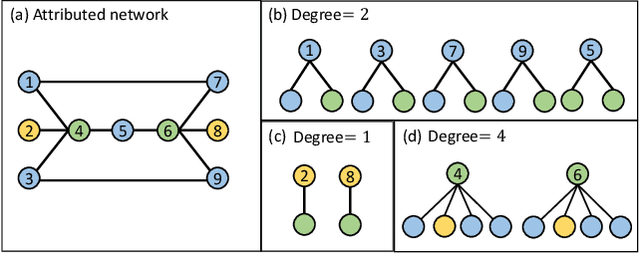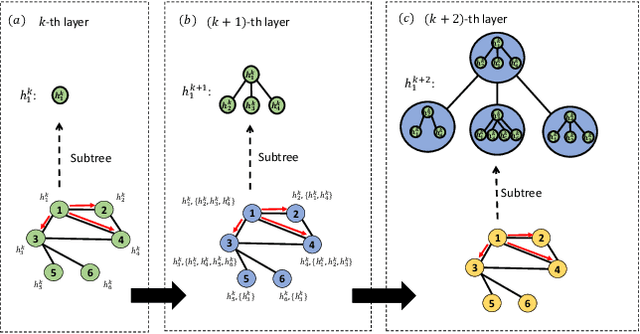DEMO-Net: Degree-specific Graph Neural Networks for Node and Graph Classification
Paper and Code
Jun 05, 2019



Graph data widely exist in many high-impact applications. Inspired by the success of deep learning in grid-structured data, graph neural network models have been proposed to learn powerful node-level or graph-level representation. However, most of the existing graph neural networks suffer from the following limitations: (1) there is limited analysis regarding the graph convolution properties, such as seed-oriented, degree-aware and order-free; (2) the node's degree-specific graph structure is not explicitly expressed in graph convolution for distinguishing structure-aware node neighborhoods; (3) the theoretical explanation regarding the graph-level pooling schemes is unclear. To address these problems, we propose a generic degree-specific graph neural network named DEMO-Net motivated by Weisfeiler-Lehman graph isomorphism test that recursively identifies 1-hop neighborhood structures. In order to explicitly capture the graph topology integrated with node attributes, we argue that graph convolution should have three properties: seed-oriented, degree-aware, order-free. To this end, we propose multi-task graph convolution where each task represents node representation learning for nodes with a specific degree value, thus leading to preserving the degree-specific graph structure. In particular, we design two multi-task learning methods: degree-specific weight and hashing functions for graph convolution. In addition, we propose a novel graph-level pooling/readout scheme for learning graph representation provably lying in a degree-specific Hilbert kernel space. The experimental results on several node and graph classification benchmark data sets demonstrate the effectiveness and efficiency of our proposed DEMO-Net over state-of-the-art graph neural network models.
 Add to Chrome
Add to Chrome Add to Firefox
Add to Firefox Add to Edge
Add to Edge